Driven Out: Global Response to the Plight of Forcibly Displaced People
Submit a question
By Estelle Erwich
Introduction
In a world of ever-renewing headlines, the occurrence of forced displacement continues to expand and evolve in both location and nature. Oftentimes, the segmented nature of refugee response leads to under-equipped nations in the Global South undertaking the processing and resettlement of a large majority of the world's refugees, while the original signatories of refugee conventions in the Global North assume little responsibility. On November 15th, RAFDI hosted a panel of regional experts to discuss the core causes of forced migration and displacement, the current failings of the global response to international movement, and what the future of immigrant infrastructure could look like.
“Driven Out: Global Responses to the Plight of Forcibly Displaced People” featured introductions by James Hollifield, RAFDI Working Group co-chair, Global Fellow, and Professor of Political Science at Southern Methodist University, and was moderated by Rina Agarwala, author and Professor of Sociology at Johns Hopkins University. The panel included insight from David Scott Fitzgerald, co-chair of the Center for Comparative Immigration Studies and Professor of Sociology at the University of California, San Diego, Gerasimos Tsourapas, Professor of International Relations at the University of California, Irvine, Pieter Bevelander, Director of the Malmö Institute of Studies of Migration, Diversity, and Welfare at Malmö University, and Kamal Sadiq, Director of the Center for Global Peace and Conflict Studies at the University of California, Irvine. Each speaker brought unique and critical analysis from their specific field of migratory study, contributing to the panel and answering questions from the audience.
A Systems-Based Approach
After introductions by Agarwala and Hollifield, Fitzgerald began the panel with discussions about his systems-based approach to forced migration and refugee movement. True to its name, a systems-based approach to understanding migration focuses on “interactions and sequences of feedback loops that involve people and states both in places of origin, transit, and destination,” Fitzgerald explained. To exemplify this, Fitzgerald referenced the presence of migrants from El Salvador at the southern border. In full context, economic and political intervention by the US in El Salvador created the instability that subsequently led to a large migration of Salvadorans into the US, very few of whom were granted asylum. This initial wave of forced migration generated family unification and chain migration from El Salvador to the US.
Fitzgerald also touched upon two other major challenges he finds pertinent to address in the study of forced migration: the prevalence of border externalization and the reality of mixed flows of migrants. He emphasized that for many decades, the US has used Mexico as a buffer state both with the rest of Central America, and the rest of the world. Mexico has increased visa restrictions, reducing migrants’ ability to arrive by plane, and instead forcing increasing numbers of people to travel through extremely dangerous conditions on foot. The US funds what Fitzgerald described as both “care” and “control” incentives in Mexico, which include both the funding of humanitarian operations and refugee camps in the southern part of the country through operations like the UNHCR, as well as the 3.5 million total deportations of asylum seekers from the country.
Streamlining Asylum Processes in Europe
Pieter Bevelander, professor of International Migration and Ethnic Relations and Director of the Malmö Institute of Studies of Migration, Diversity, and Welfare at Malmö University in Sweden, provided insight into the evolving status of asylum processing in the European Union. Specifically, he commented on the formation of new asylum management regulations under the EU Asylum Agency (EUAA). The goal of this agency is to allow refugees to actually seek processing for asylum claims at the initial borders they arrive at, rather than being forced to seek refuge at tertiary locations in Europe. The EUAA aims to institute a common asylum procedure across the EU border, such as pre-entry screening and new resettlement frameworks. While this new system may allow for a streamlined approach to asylum applications, it will also generate an increase in migrant detention and stricter border control, Bevelander noted. EU member states are increasingly willing to pay to keep asylum seekers outside of Europe– particularly those who are not coming from other Europe or Western origins. While the current political climate in Europe is lending itself to increased support of funding new asylum procedures, this attitude does not extend to all forcibly displaced populations. Bevelander highlighted the extremely different and preferential response to Ukrainian refugees by EU states in comparison to migrant populations from the Middle East or West Africa. Refugees from Ukraine are “seen as… more welcome, compared to people that come from outside of Europe,” Bevelander noted.
Decolonizing the Study of Forced Migration
An expert on the international relations of the Middle East and the broader Global South, Gerasimos Tsourapas is the Chair of the Ethnicity, Nationalism, and Migration Studies Section of the International Studies Association and Professor of International Relations at the University of Glasgow. He centered his contributions to the panel in the context of the relationships of actors in the Global South, and the growing efforts to decolonize the field of studying forced displacement by critically analyzing the role of the Global North in creating and responding to forced displacement. In the typically Eurocentric view of migration, Tsourpas pointed to two main paradoxes that typically go unrecognized. First, he pointed out that “the countries that host the greatest number of forcibly displaced migrants are not those actually responsible for creating the refugee crisis to begin with,” particularly in reference to the acceptance of Syrian refugees from Turkey, Lebanon, and Jordan. This is especially jarring when considering the unwillingness of nations in the Global North to accept migrants on any comparable scale, even when some countries' involvement in international conflict is what leads to the creation of refugee populations.
Secondly, Tsourapas mentioned, it is important to note the amount migrants which countries in the Global South accept and the strain it puts on their resources, while Global Nothern states with greater capacity and infrastructure accept measurably fewer amounts of refugees. This inequitable “juncture of responses” represents the current disproportionality of the global response to forced migration. Finally, viewing displacement in the lens of diplomacy and international relations, Tsourapas commented on the realities of the instrumentalization of refugees for political or diplomatic reasons, which often reduces displaced people to pawns for Western actors. It is critical, Tsourapas concluded to view migration through the lens of the Global South enhances the global ability to “highlight these issues of injustice ... these questions of dignity, and start putting them towards the forefront.”
The Broken Refugee Regime
Kamal Sadiq, Director of the Center for Global Peace and Conflict Studies at the University of California, Irvine, continued the panel’s analysis of international forced displacement through the lens of the Global South. Sadiq, who specializes in migration in South Asia, noted that most refugees are in the Global South, housed in countries which are not signatories to the original refugee conventions. Because of this, Sadiq said, the international refugee regime is broken. It has been delegitimized due to policy uncertainty and intense pressure placed on countries with low capacities to accept migrants. In the absence of mutually respected and adequately enforced refugee regime, states look to other norms such as humanitarian organizations. Sadiq pointed to the example of Bangladesh, which receives about 60% of the funding the country requires and was promised to provide for its displaced population. For the 930,000 refugees in Bangladesh, this lack of resources leads to food insecurity and malnutrition.
Sadiq also pointed to issues of employment as another crucial challenge to displaced people internationally. Currently, the international refugee regime “doesn’t want to disperse stipends but wants to move to self-reliance,” Sadiq noted, but added that “only 75 of the 145 signatory states grant the right to work.” Crucially, this means that only 65% of the world’s refugees have the right to work legally. To survive, many displaced people must work outside of the formal economy, and this lack of stipends is “pushing this population into illegality,” Sadiq said. This leaves a significant portion of the world’s refugees in the informal marketplace, without sufficient wages or workplace protections.
A final challenge which Sadiq extrapolated upon was the resentment towards refugees in non-signatory states, which is pushing more of the international community to view displaced people through a lens of securitization. Viewing migrants as a threat to security, or a problem to be deported, is not only dangerous for the rights of displaced people themselves, but is also counterintuitive for the world at large. In a world of aging countries which need influxes of people and labor, viewing migration as a national security issue, rather than a potential solution for much of the world economy, continues to postpone progress and delegitimize the refugee regime, Sadiq said.
Conclusions
Before answering audience questions, Hollifield and Agarwala concluded the panel with their final thoughts from the discussion. Agarwala proposed several questions for the panelists, particularly about what the future of refugee systems could look like. Particularly, she pointed to the illogical separation of the issues of migration and labor allocation, as “host countries in the EU, as host countries in the Global South, desperately need labor,” yet more than half of these countries do not allow refugees to work. In conclusion, Agarwala noted that each speaker had identified a lack of equitable responsibility sharing in the global community’s response to refugees. This does not only apply to financial responsibility, Agarwala noted, but also to the maintenance of the rights and dignity of displaced people. The continued securitization of refugee response by the international community will only continue to push displaced people further away from the rights and norms afforded to native populations, Agarwala concluded.
Hollified echoed the other panelists and re-emphasized the importance of understanding migration within the full context of imperial and colonial history. For instance, Hollifield noted, many of the original compacts of the refugee regime which underscore international responses today were written to apply to European nations after World War II and did not include the nations which host the greatest number of refugees currently. Hollifield also noted that the US used to be a leader in humanitarian aid, and it is in the national interest of the country to return to its role at the forefront of the global human rights regime. While such a regime will require a strong leader, Hollifield explained, it will also require cooperation and burden sharing. The international community has repeatedly learned the lesson that it “cannot deal with these issues on a unilateral basis,” Hollified concluded, “so, building a wall is not going to resolve these crises.”
Speakers
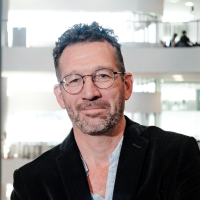
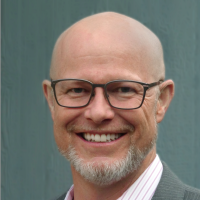
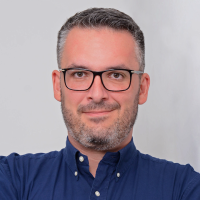
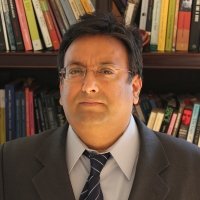
Introductions
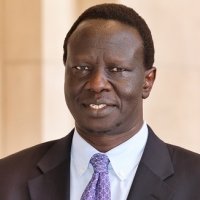
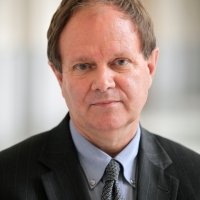
Professor of Political Science and Director, Tower Center SMU
Moderator

Hosted By

Refugee and Forced Displacement Initiative
The Refugee and Forced Displacement Initiative (RAFDI) provides evidence-based analyses that translate research findings into practice and policy impact. Established in 2022 as a response to an ever-increasing number of people forcibly displaced from their homes by protracted conflicts and persecution, RAFDI aims to expand the space for new perspectives, constructive dialogue and sustainable solutions to inform policies that will improve the future for the displaced people. Read more
